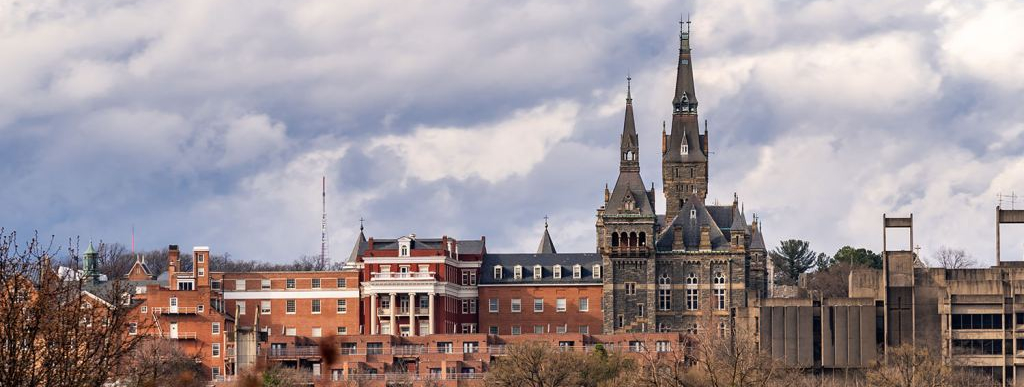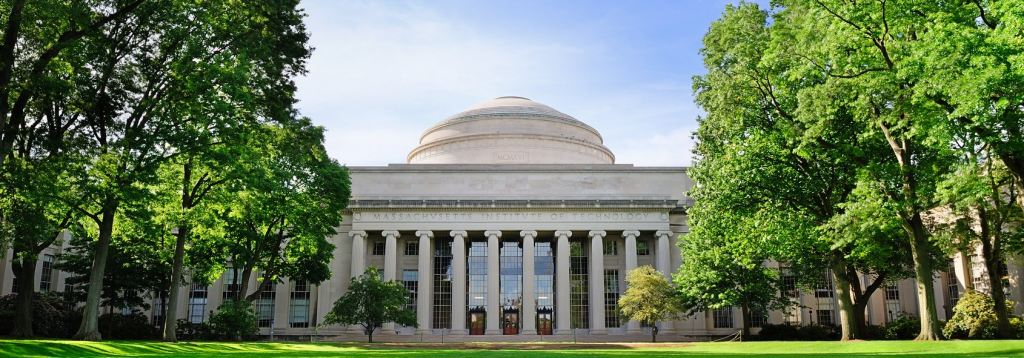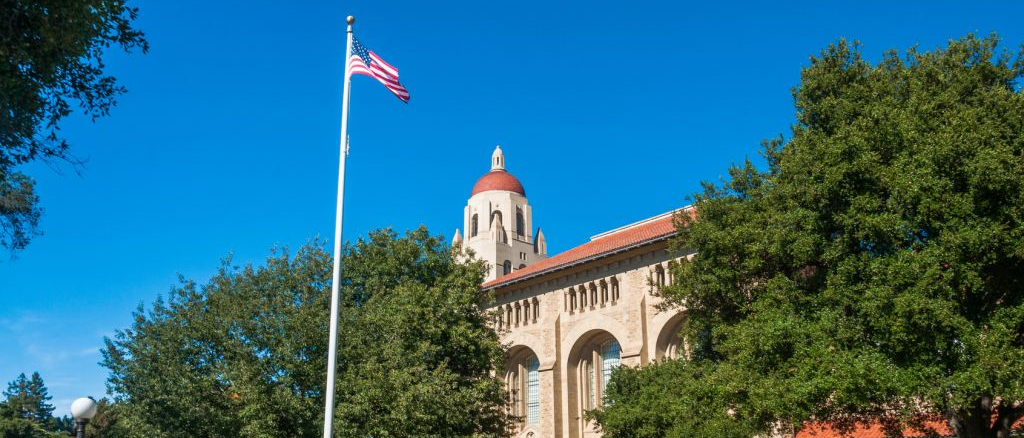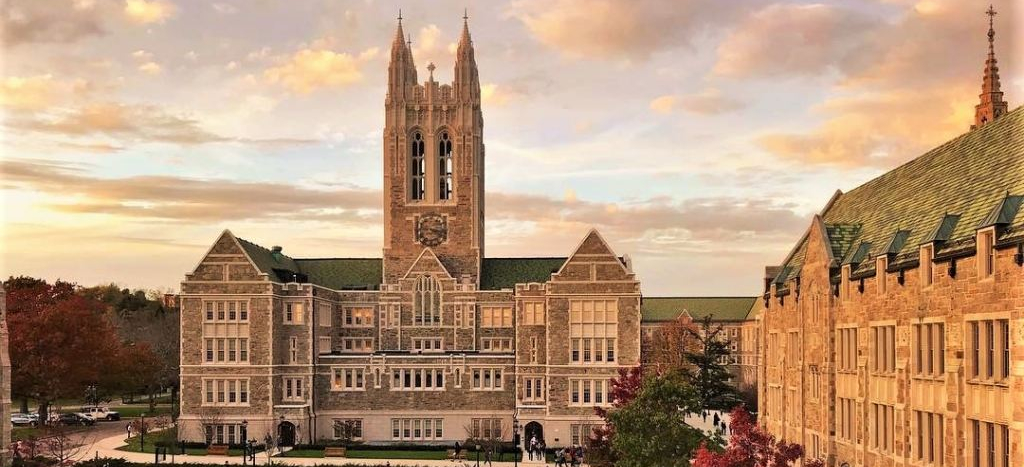IvyWise On-Demand: Georgetown: How To Get In and What To Know
Join IvyWise college admissions counselors Christine, Judy, and Robin, each former admissions directors at Georgetown, for an inside look at Georgetown. Whether you are beginning the college search process or finalizing your list, this is a great opportunity to learn all about Georgetown from those who used to recruit and admit students to the university.
Watch Now
Georgetown is known for its strength in the fields of international relations and political science, so it’s not surprising that many diplomats and politicians have passed through its doors. It’s the perfect location to steep yourself in the necessary knowledge to pursue careers in these fields. If these majors are not your thing, Georgetown offers many more areas of study.
If you are a curious, strong student who sees yourself living and studying in the nation’s capital, Georgetown should be on your radar. Read on to find out everything you need to know to apply to Georgetown.
How to Get into Georgetown: Table of Contents
- When to Apply to Georgetown
- How Hard Is It to Get into Georgetown: Early Prep
- How Do You Actually Get into Georgetown: The Application
- Class Profile
- What Makes Georgetown Unique?
- Georgetown FAQs
When to Apply to Georgetown
You should apply for admission to Georgetown University during the fall or early winter of your senior year of high school. It’s important to be aware of the various deadlines to ensure you submit all your application materials on time.
Georgetown Deadlines
Georgetown offers two application rounds — the option you choose will affect your deadlines for submission. These deadlines might shift by a day or two each year, so it’s important to check the due dates for your admissions cycle.
- November 1: Early Action applications
- January 10: Regular Decision applications
- February 1: Financial aid forms
Students who apply in the early round can expect a decision on December 15. For Regular Decision applicants, the decision date is April 1.
Early, Rolling, and Regular Decision
Georgetown offers two application options: Early Action and Regular Decision.
Early Action is an early application type that is non-binding. This means you can apply to multiple places Early Action (if they are not Restrictive Early Action or Single Choice Early Action). This application type gives you the chance to show your interest in the school early and receive your admission results early. It is a good option for students with strong grades throughout high school who feel their profile is competitive without their first semester senior grades.
Another early option is Early Decision, which is like Early Action except it is binding — students applying Early Decision must enroll if admitted and withdraw all other applications. Georgetown does not offer Early Decision, but many other top-tier schools do.
Regular Decision is a standard, non-binding application type. This is generally the most popular option, and it gives you more time to prepare your application since the deadline is later.
Finally, rolling admission is when applications are accepted and reviewed without a single deadline but on an ongoing, rolling basis. Georgetown does not offer rolling admission.
Waitlisted Applications
If you apply to Georgetown University Regular Decision, there are three possible decision notifications you may receive: accepted, denied, or waitlisted. The waitlist is made up of strong students the university does not have the space to admit. You can accept or decline your spot, though your chances of getting off the waitlist are slim. Out of the 1,611 students waitlisted at Georgetown for fall 2023, only 93 were admitted — a 5.77% admit rate.
Deferrals
If you apply to Georgetown via Early Action, you will either be admitted or deferred. When you’re deferred, it means your application will be evaluated with the Regular Decision pool. According to Georgetown, approximately 15% of deferred applicants are admitted in the Regular Decision round.
So, what should you do if you’ve been deferred? Georgetown highly encourages deferred students to maintain excellent grades and submit additions to their applications, like new standardized test scores, honors, and awards. It is also standard to send a letter of continued interest reiterating your commitment to the university.
How Hard Is It to Get into Georgetown: Early Prep
Admission to Georgetown is quite competitive. It is considered a reach school by any standard, as recent admissions rates show:
That said, selectivity goes beyond the numbers. How hard it is to get into a college depends on many different factors, including institutional priorities, diversity initiatives, and more. The most important thing you can do as an individual applicant is work on making your application as strong as possible. The first way to think about doing that is by strategically building your profile.
Build Your Profile
College admission isn’t all about who you are and where you come from, of course. Mainly, your profile is about what you have done — the classes you’ve taken in high school; how you have performed in them; and other activities, initiatives, and leadership positions that have shaped you. That said, what does Georgetown University look for? Georgetown seeks to admit a class of diverse students who are extremely motivated and talented.
Because colleges look at all four years of high school, it’s important to start building your profile early. Commit to extracurricular activities and give yourself room to grow, from newcomer to president of a club. Identify your interests and dive in, participating in programs and initiatives that will highlight your passions. And maintain high grades in the most rigorous courses available.
Visit the Campus and Attend a Class
If you can find the time and resources, there’s nothing like visiting Georgetown in person. An on-campus visit includes a campus tour and information session. With its towering gothic buildings overlooking the river, the campus is a stunning setting to get a stellar education. Make sure to leave time before or after your official campus visit to walk around Georgetown itself. It’s one of Washington, D.C.’s most charming neighborhoods, lined with brick and cobblestone and glittering with great shopping destinations.
Can’t make it to campus? Georgetown offers virtual information sessions with an admissions officer as well as virtual reality walking tours.
Connect With a Student
Prospective students are encouraged to contact their state or regional chair to learn about Georgetown from a current student that comes from the same town, state, or country as you. These students cannot answer admissions questions, but they can discuss student life and what it’s like to live in Washington, D.C.
Learn About Any Student Experiences
Another option to connect with a student is to sign up for a virtual “coffee and chat” with a current Georgetown student. This is an opportunity to learn about Georgetown in a one-on-one setting, directly from someone experiencing what it’s like to be a student there. Admissions will try to match you with a student who shares your interests.
How Do You Actually Get into Georgetown: The Application
Prospective students should know a few things ahead of time when applying to Georgetown — the most important being that Georgetown has its own application and does not use the Common App. Beyond that, it’s important to understand the profile of admitted students so you can see how you compare.
GPA Requirements
Georgetown does not report the GPAs of their enrolled students in their Common Data set. However, they do report class rank. Of the students from the class of 2027 who reported their class rank, 87% graduated in the top 10%. With this information, it’s easy to deduce that Georgetown is quite competitive. High school students who are not in the top 10% of their high school class may be at a competitive disadvantage.
SAT and ACT Scores
Georgetown requires standardized test scores for admission. For the class of 2027, the middle 50% of students scored 1390-1530 on the SAT and 32-34 on the ACT. If you want to be a Hoya, aim to get test scores within these ranges. Your scores must be submitted no later than January of your senior year.
Essays
Students applying to Georgetown are asked to write three essays: a short essay, essay one, and essay two. The short essay is half a page, single-spaced. Essay one is for the admissions committee, and essay two is specific to the school the student is applying to — each of these should be approximately one page, single-spaced. The essay prompts may change each year, but these prompts for fall 2025 admission gives you some idea of what to expect.
Short essay: Briefly discuss the significance to you of the school or summer activity in which you have been most involved.
Essay one: As Georgetown is a diverse community, the Admissions Committee would like to know more about you in your own words. Please submit a brief essay, either personal or creative, which you feel best describes you.
Essay two:
APPLICANTS TO THE COLLEGE OF ARTS & SCIENCES: Founded in 1789, the Georgetown College of Arts & Sciences is committed to the Jesuit traditions of an integrated education and of productive research in the natural sciences, humanities, social sciences, and fine arts. Describe your interest in studying at College of Arts & Sciences. Applicants interested in the sciences, mathematics, or languages are encouraged to make specific reference to their choice of major.
APPLICANTS TO THE SCHOOL OF NURSING: Georgetown University’s School of Nursing is committed to the formation of ethical, empathetic, and transformational nursing leaders. Describe the factors that have influenced your interest in studying Nursing at Georgetown University.
APPLICANTS TO THE SCHOOL OF HEALTH: Georgetown University’s School of Health was founded to advance the health and well-being of people locally, nationally, and globally through innovative research, the delivery of interdisciplinary education, and transformative engagement of communities. Describe the factors that influenced your interest in studying health care at Georgetown University, specifically addressing your intended related major: Global Health, Health Care Management & Policy, or Human Science.
APPLICANTS TO THE WALSH SCHOOL OF FOREIGN SERVICE: Georgetown University’s Walsh School of Foreign Service was founded more than a century ago to prepare generations of leaders with the foundational skills to address global issues. Describe your primary motivations for studying international affairs at Georgetown University and dedicating your undergraduate studies toward a future in global service.
APPLICANTS TO THE MCDONOUGH SCHOOL OF BUSINESS: Georgetown University’s McDonough School of Business provides graduates with essential global, ethical, analytical, financial, and diverse perspectives on the economies of our nation and the world. Describe your primary motivations for studying business at Georgetown.
Letters of Recommendation
Georgetown requires one teacher’s recommendation. Ask a teacher who knows your work and can speak to your greatest strengths. It’s always a good idea to give your recommender plenty of time to prepare. Generally, it’s best to ask for recommendations by the end of your junior year or at least the very beginning of your senior year.
Admission Interviews
Georgetown requires interviews as an important extra step in the admissions process. Students must set up an interview with an Alumni Admissions Program Committee member once they receive the interviewer’s contact information. Interviews are arranged according to your geographic area.
This alumni interview is a chance for students to highlight certain aspects of their backgrounds and achievements. It’s also a great opportunity to ask an alumnus about their experience at Georgetown.
Contribution to the Georgetown Community
If you’re interested in attending Georgetown, it’s important to articulate through your essays and interview what impact you plan to make at the university. Be specific. Name clubs, courses, research opportunities, professors, and other aspects of Georgetown that are of particular interest to you.
Class Profile
As you research Georgetown University, it can be helpful to review the class profile. This provides information about how many people apply to Georgetown, the acceptance rate, class size and demographics, geographic distribution of students, and more. This information can help you better understand Georgetown’s admission standards so you can assess your chances of being accepted.
Here are some quick statistics for the class of 2027:
What Makes Georgetown Unique?
Georgetown is unique in so many ways! It’s a world-renowned Jesuit university located in the capital of the United States. It’s a gorgeous, neo-Gothic campus in one of Washington D.C.’s most beautiful neighborhoods. It offers excellent undergraduate and graduate degrees in five different major colleges.
The Walsh School of Foreign Service offers more specialized undergraduate majors in this field than most universities, including majors in culture and politics; global business; international economics; international history; international political economy; international politics; regional and comparative studies; and science, technology & international affairs. Georgetown also offers many other programs of study in its four other academic colleges, the College of Arts and Sciences, the McDonough School of Business, the School of Health, and the School of Nursing.
Its location in Washington D.C. makes it an incredible place to live and study for many reasons. Students have access to the city’s cultural offerings, such as museums, historical sites, monuments, sports, and theater, and access to national resources like the Library of Congress — not to mention, numerous internship opportunities.
Georgetown may be right for you if you are passionate about making the world a better place, feel strongly about cultural and linguistic diversity, and want to take advantage of the offerings of our nation’s capital.
Georgetown FAQs
Where is Georgetown University?
Georgetown University is in the Georgetown neighborhood in Washington, D.C.
How many students does Georgetown accept?
While the acceptance rate fluctuates from year to year, it is currently around 12% to 13%, making it a highly competitive school.
What are Georgetown’s best majors?
Georgetown is particularly known for its international relations and government programs, but business-related majors are also popular.
What GPA do you need to get into Georgetown?
While Georgetown does not specify a minimum GPA for admission, most undergraduate students graduated in the top 10% of their high school class.
What does Georgetown look for in students?
Georgetown looks for students who are highly accomplished and talented both academically and in their extracurricular pursuits. Students are expected to make an impact in the campus community.
Admission Counseling
After reading and better understanding what it takes to gain admission to Georgetown University, it’s easy to understand why families may be interested in hiring an admissions counselor who can help students develop a strategic plan, build their profiles, and more. The highly selective world of U.S. college admissions is one that takes time and work. While students can manage this process on their own, hiring an admissions consultant can streamline the process, replacing some of the anxiety and confusion with guidance and reassurance.
Getting into Georgetown is challenging, but IvyWise counselors are here to give you the best possible chance of getting into your dream school. Set up an Initial Consultation to get in touch with a counselor.
Get Started




